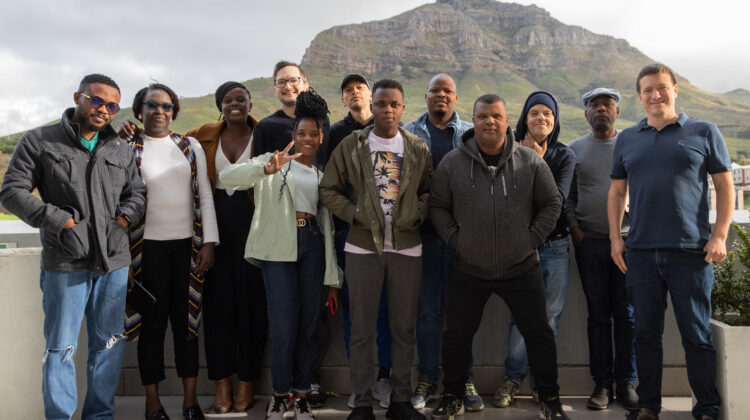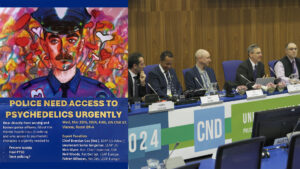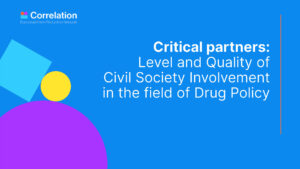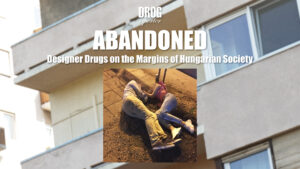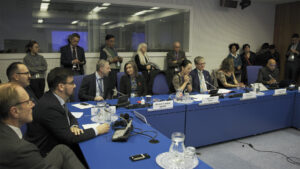Prior to the Africa Policy Week in Cape Town, South Africa; IDPC, SANPUD and Drugreporter organised Video and Media Advocacy Training in the city.
The young drug reform activists arrived from Ghana, South Africa, Kenya, and Zimbabwe. Unfortunately two participants from Nigeria were denied their visas at the last minute, and could not take part in the event.
Between August 9-12, The video training, held by István Gábor Takács covered the topics of video advocacy theory, gear, camera handling and composition, interviewing techniques, and editing. On the second day, with the help of SANPUD, trainees could visit a harm reduction drop in centre and an outreach program, where they could practise their newly acquired videography and interviewing skills. On the third and fourth day they used each other’s footage to learn editing on the trial version of Premiere Pro CC 2023, using rented laptops. There were giveaways as well: They got a clip-on microphone that works with both cameras and phones, and a pen-drive that included useful resources such as all the presentations, videos, and background materials from the course, as well as free editing software and editing tutorials. By the end of the course, almost all of them produced their own first video.
On the 13th of August, at the media training held by Péter Sárosi, participants learned in an interactive way how to use traditional methods of communicating with the print and broadcast media, such as creating strong messages, understanding what is interesting for the media, writing press releases, organising press conferences, and giving television interviews. They gave a practice TV interview to the Drugreporter crew, and we analysed their performances together.
Some pictures of the event:
You can read the first hand report of one of the participants, Michael Kumordzi Tetteh, here:
After the training, participants stayed for the 3 day Africa Drug Policy Week as well, where they had the task of producing a short video about the event. The first such video, produced beautifully by Michael Kumordzi Tetteh and Appiah Kobina Okyebi Andam, is already public and can be seen here:
A few examples of the anonymous feedback by the participants:
“The training was fantastic and very educational. I actually met my expectations and will be able to build on the skills I have acquired.”
“Both the theory parts and practical parts were well demonstrated and the whole process was able to build me up as an individual, considering I used to panic before cameras. The fact that I can be able to make a difference in the society we live in, through video and media advocacy, was really an amazing experience.”
On what they found most useful:
“The field work was very useful. It helped to know how to shoot videos and be able to tell a story using what you have.”
“How to conduct interviews , shooting videos, and editing to come up with a meaningful story”
On what aspects could be improved:
“More time”
“Considering some phones were low quality, I’d advice that the next training you offer cameras to maintain the quality of the final videos.”
“Nothing really, because it will depend on the participants and the geographical location, but all in all, I really enjoyed the training.”
The ratings in numbers are the following:


At Drugreporter we believe that the opportunity to hold such training sessions is the highlight of our work. Seeing young activists getting inspired to produce videos is one of the most rewarding experiences of our work.
The training was supported by the Robert Carr Civil Society Networks Fund (RCNF).
István Gábor Takács
